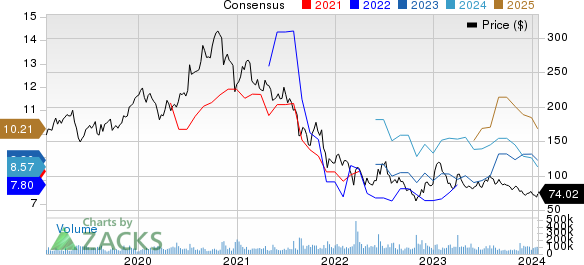Introduction
Alibaba’s BABA online second-hand goods trading platform, Xianyu, is disrupting the traditional brick-and-mortar retail model by venturing into the offline landscape with its first “all-category” store. The new Xianyu Recycle Shop, located in the Gongshu district of Hangzhou, is all set to revolutionize the second-hand retail market by utilizing a consignment model for buying and selling used items.
Expanding Product Offering
The store will cater to a diverse range of products, including shoes, apparel, accessories, and luxury items but with certain exclusions such as gold, jewelry, food, pets, and plants. This expansion reflects Alibaba’s commitment to catering to customer needs and providing a hassle-free shopping experience. By facilitating offline transactions, Xianyu aims to enhance customer convenience and reduce the need for constant app engagement.
Market Impact
Alibaba’s foray into the offline second-hand retail segment marks a strategic diversification that can potentially drive substantial traction among resellers in China. The move represents a bold assertion by Alibaba in reshaping the dynamics of retail commerce in the country. This shift also underscores the company’s adaptability and its ability to tap into evolving consumer preferences.
Strengthening Taobao and Tmall Group Segment
This initiative aligns with Alibaba’s broader strategy to bolster its Taobao and Tmall Group segment. The company has been introducing innovative experiences and services, such as AI smart assistants and new border services, to enhance merchant productivity and deliver an enriched shopping experience. With the introduction of several new product categories and merchandise, including licensed products and 3D experience halls, Alibaba is reinforcing its foothold in the retail market.
Financial Outlook
While these efforts are expected to have a positive impact on Alibaba’s financial performance in the near term, it is important to note the company’s consistent year-over-year growth. The Zacks Consensus Estimate for BABA’s fiscal 2024 revenues projects a 5.3% increase, with the consensus mark for earnings indicating an 11.6% growth.
Concerns and Considerations
However, despite these positive strides, Alibaba faces challenges such as weakening market conditions, softness in China Commerce business, and sluggishness in online physical goods’ gross merchandise volume at Taobao and Tmall marketplaces. These factors have contributed to a 38% decline in the company’s shares over the past year.
Conclusion
Alibaba’s transformation of Xianyu from an online platform to an offline retail store represents a bold step in redefining the retail market. The convergence of online and offline retail channels is a testament to the company’s commitment to meeting customer needs and adapting to changing market dynamics. While the move is poised to bolster the company’s financial performance, it is imperative for investors to remain mindful of the existing market challenges and their potential impact on Alibaba’s stock performance.

